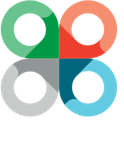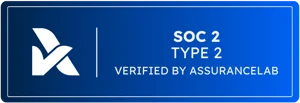Technology has already transformed how consumers think about and manage their money. From online banking and money tracking tools to investing apps and the rise of robo-advisors, the financial services industry sits at an intersection of constant innovation and change.
For advisory firms used to the old-fashioned way of doing business, the transformation brought about by new financial technology (fintech) solutions can be overwhelming—and even threatening, in the case of AI-powered tools that attempt to outsource professional advising into the hands of a computer program.
But fintech is far from a threat to your company’s future. In fact, advisors should view financial technology as a tool to keep pace with client expectations. In the best-case scenarios, this technology can also overhaul your current operations to achieve efficiencies and performance gains that save your company time and money while improving your overall client experience.
When used the right way, fintech can help you attract new clients and grow your business. Here’s how to leverage this technology to build a brighter future.
Why Fintech Is Becoming More Commonplace in Wealth Management
As algorithm-based processing, machine learning, and artificial intelligence become more accessible, they’re being used to tackle complex problems and processes that once required the expertise of a financial services expert.
Although these tools still require the expertise of an advisor to manage their tasks and place their services into context, wealth management firms are now using these tools to automate a number of steps in the advising process. A wide range of retirement planning tasks, from analyzing investments and holdings to rebalancing portfolios, can now be automated to achieve faster, more accurate results that support the work of a financial advisor. This can include scenario planning to aid tax planning and developing strategies on when to start claiming Social Security benefits, among other processes relevant to retirement planning.
But the capabilities of these fintech solutions are far from comprehensive. For advisors, this is good news: Today’s fintech is nowhere close to replacing the personalized service you provide to your clients. Instead of a new form of competition to beat, fintech represents a class of powerful tools that can take your firm to the next level.
Finding and obtaining this software is easy. You can license services (such as Covisum’s suite of software solutions) on a subscription basis, making fintech adoption quick and easy for your company. When you license our software, you also gain access to a customer experience team that supports onboarding and provides ongoing customer support to streamline your adoption of the software while maximizing the value you can create for your business.
Benefits of Using Fintech at Your Practice
You know fintech is available to support your business—but are you aware of the tangible benefits your business can leverage by adopting these innovative solutions? Here’s a look at some of the top benefits of retirement planning fintech and how they improve your business operations and your bottom line.
Automate tedious processes to save advisors time and increase their productivity.
The adoption of algorithms, machine learning, and artificial intelligence has produced a generation of advising tools that can handle a wide range of advising tasks, even when accounting for complex business rules and customer-specific variables. Review multiple financial planning scenarios, and execute advanced modeling that helps advisors make better-informed decisions for their clients. Through the use of these solutions, advisors can offload menial, time-consuming tasks to an automated software service, thereby freeing up their time to focus on tasks requiring a trained, human advisor—such as meeting with clients.
Provide clients with collaborative tools that involve them in wealth management.
Fintech isn’t just advisor-facing. You can also deploy fintech solutions to educate and empower your clients. Intuitive, user-friendly educational programs can support better learning retention among your clients and give them control over how and what they learn regarding the best practices for wealth management. Better yet, this education can be delivered without the direct oversight of advisors, improving client education while reducing the workload for your advisors.
Generate new insights and strategy recommendations through powerful analytics.
Use the data generated by your fintech software to analyze trends across your client base.
Improve your lead generation and engagement through automated marketing and coordinated outreach.
Generating and qualifying leads is crucial to your company’s growth—but it’s also incredibly time-consuming. With the right automation tools on your side, you can engage clients faster and more efficiently, resulting in higher conversion rates and the ability to grow your customer base faster.
Consolidate leads and track customer relationships through a centralized CRM.
Managing leads can be a constant juggling act. Centralized lead information can help you coordinate outreach and monitor prospect engagement from a high-level view.
Streamline client data management through deep platform integration.
Within the Covisum suite, client data is shared between financial planning solutions to minimize advisor data entry while providing you with up-to-date data. Enter client data once, and you can find it repopulated across all Covisum tools. You can toggle through different reports and see updated data on each report, reducing data entry errors and improving the quality of these reports.
Examples of Fintech for Advisors
Fintech comes in all shapes and sizes—and most of it doesn’t necessarily offer any value to the retirement planning process. But financial advisors would be wise to set their sights on certain core fintech solutions that can quickly improve the quality of their financial planning:
Retirement Planning Solutions
This includes Covisum’s software suite, including products such as Social Security Timing and Tax Clarity. Retirement planning tools can automate data collection and analysis to support tax mapping, scenario planning, and other planning considerations based on each clients’ specific goals.
Marketing Automation Software
Automated marketing tools can help you increase the quantity and quality of your leads, track engagement with clients, minimize average response times, and deliver timely follow-ups via email and other channels.
Self-Service Educational Tools
Self-service solutions can support and educate clients through automated module delivery, providing a key service to clients that reduces advisors’ hands-on time while still cultivating those client relationships. Covisum offers a number of marketing kits to support these educational efforts, covering retirement income, understanding tax-saving opportunities in retirement, risk management in retirement, and Social Security benefits timing.
An Integrated CRM Connected to the Rest of Your Marketing Department
Don’t keep client data siloed in fragmented fintech solutions. An integrated CRM can help consolidate and organize this data to improve the full lifecycle of your inbound leads and converted clients.
An Online Calendar Booking Service
Today’s clients want the convenience of scheduling appointments online. Provide this service on your company’s website to remove one obstacle to a face-to-face meeting with prospects.
Rather than fear the automation and convenience offered by fintech solutions, financial planning firms should embrace this technology as an opportunity to strengthen their operations, improve the quality of their financial planning services, and provide a better customer experience to their clients.






